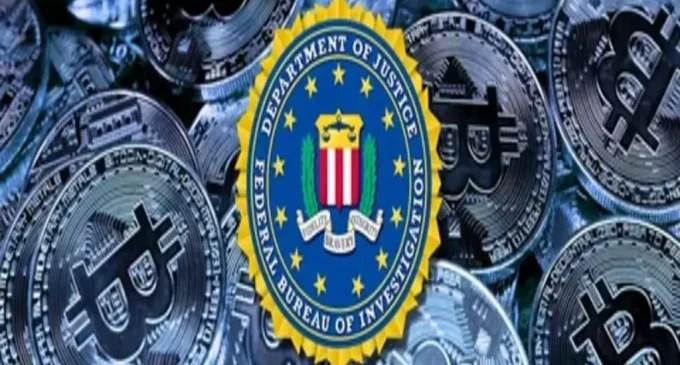
Introduction
The U.S. Securities and Exchange Commission (SEC) has long been a central figure in regulating the cryptocurrency industry. Over the past few years, it has initiated lawsuits against major crypto companies such as Ripple, Coinbase, and Binance, asserting that these firms violated U.S. securities laws. However, in a surprising development, the SEC has now invoked a new Crypto Task Force to reassess its enforcement priorities.
This move has led to delays in several ongoing lawsuits, raising questions about whether the SEC is rethinking its approach to crypto regulation or simply stalling cases that might not hold up in court. In this in-depth analysis, we explore the potential motivations behind this decision, its impact on the crypto industry, and what it means for future regulatory policies.
The Purpose Of The SEC’s Crypto Task Force
1. A Shift in Enforcement Strategy
The formation of the Crypto Task Force suggests a shift in how the SEC approaches digital assets. Traditionally, the agency has maintained an aggressive stance, viewing most cryptocurrencies as unregistered securities. This has led to numerous lawsuits, including its high-profile case against Ripple, where it alleged that XRP was an unregistered security.
By establishing a specialized task force, the SEC appears to be re-evaluating its enforcement tactics. It could be a recognition that existing regulatory frameworks are inadequate for handling the complexities of the cryptocurrency industry.
2. Delaying Cases to Reassess Legal Grounds
One of the most immediate consequences of the Crypto Task Force’s formation has been the delays in ongoing legal cases. Many speculate that the SEC may be buying time to refine its legal arguments, especially in cases where previous court rulings have not been in its favor.
For example, in the Ripple vs. SEC case, the court ruled that XRP sales to retail investors did not constitute securities transactions, dealing a significant blow to the SEC’s position. This loss may have prompted the agency to pause other lawsuits and reassess its strategy to avoid further legal defeats.
Major Crypto Lawsuits Affected By The SEC’s Decision
The Ripple (XRP) Lawsuit
The SEC’s lawsuit against Ripple Labs has been one of the most closely watched legal battles in crypto history. Initially filed in December 2020, the lawsuit accused Ripple of conducting an unregistered securities offering worth over $1.3 billion.
However, after a partial legal victory for Ripple in 2023, where a judge ruled that programmatic sales of XRP were not securities, the case has been in a state of flux. The SEC’s decision to delay further proceedings through the Crypto Task Force suggests it may be reconsidering its approach toward similar crypto assets.
Coinbase vs. SEC
Another major lawsuit impacted by this shift is the SEC’s case against Coinbase, one of the largest cryptocurrency exchanges in the world. The SEC accused Coinbase of operating an unregistered securities exchange and offering illegal securities in the form of certain crypto tokens.
The delays caused by the Crypto Task Force could indicate that the SEC is struggling to define clear rules regarding what constitutes a security in the crypto space. If the agency cannot build a strong case, it may be forced to seek alternative regulatory solutions rather than relying on legal enforcement.
Binance and the SEC Settlement Talks
In a parallel development, Binance, the world’s largest cryptocurrency exchange, has been engaged in ongoing discussions with U.S. regulators regarding compliance issues. The SEC’s decision to pause its legal actions against Binance suggests that the agency is looking for settlement options rather than pursuing an outright ban or severe penalties.
This delay could be a sign that the SEC is adopting a more cooperative stance toward crypto firms, focusing on establishing compliance frameworks rather than solely relying on litigation.
Why Is The SEC Taking A Step Back?
Several factors could be driving the SEC’s decision to delay crypto lawsuits and reassess its enforcement strategy:
Political and Regulatory Pressure
The crypto industry has been gaining significant political support, with lawmakers pushing for clearer regulations rather than punitive enforcement. With the 2024 U.S. presidential elections bringing renewed focus on financial innovation, there is growing pressure on the SEC to adopt a more constructive approach toward cryptocurrency regulation.
Moreover, Congress is currently debating new crypto regulatory bills, which could influence how digital assets are classified and regulated. The SEC may be waiting for legislative clarity before proceeding with further enforcement actions.
Legal Setbacks and Court Rulings
The SEC has faced multiple legal setbacks in its recent cases, including losses in the Grayscale Bitcoin ETF case and the Ripple lawsuit. These rulings have forced the agency to reconsider whether its current enforcement strategy is legally viable.
By delaying cases, the SEC may be avoiding further courtroom defeats while working on a more refined regulatory framework.
Market Stability Concerns
Aggressive enforcement actions against major crypto firms often lead to market instability, affecting investor confidence. The SEC’s decision to slow down its lawsuits may be an attempt to mitigate unnecessary disruptions in the crypto market.
What This Means For The Future Of Crypto Regulation?
A Possible Move Toward New Regulations
The Crypto Task Force could pave the way for clearer regulations rather than an enforcement-heavy approach. If the SEC shifts its focus from lawsuits to policy-making, the industry could benefit from defined legal frameworks that support innovation while ensuring compliance.
Potential Settlements Instead of Lawsuits
With the delays in cases like Binance and Coinbase, we may see more settlements rather than full-scale legal battles. This would allow crypto firms to comply with regulations without facing excessive penalties or legal uncertainty.
Increased Industry Engagement with Regulators
If the SEC moves toward a more collaborative regulatory approach, crypto companies may be encouraged to actively engage with regulators rather than operating in legal gray areas. This could lead to mutually beneficial policies that balance innovation and investor protection.
Conclusion
The SEC’s decision to invoke a Crypto Task Force and delay major lawsuits signals a potential shift in how the U.S. regulates digital assets. While some view this as a delay tactic, others see it as an opportunity for the SEC to reassess its approach and develop more effective crypto regulations.
Moving forward, the crypto industry will be watching closely to see whether this shift leads to clearer legal guidelines or remains just another bureaucratic maneuver. Either way, this development marks a significant turning point in the ongoing battle between regulators and the rapidly evolving cryptocurrency sector.







There are no comments at the moment, do you want to add one?
Write a comment